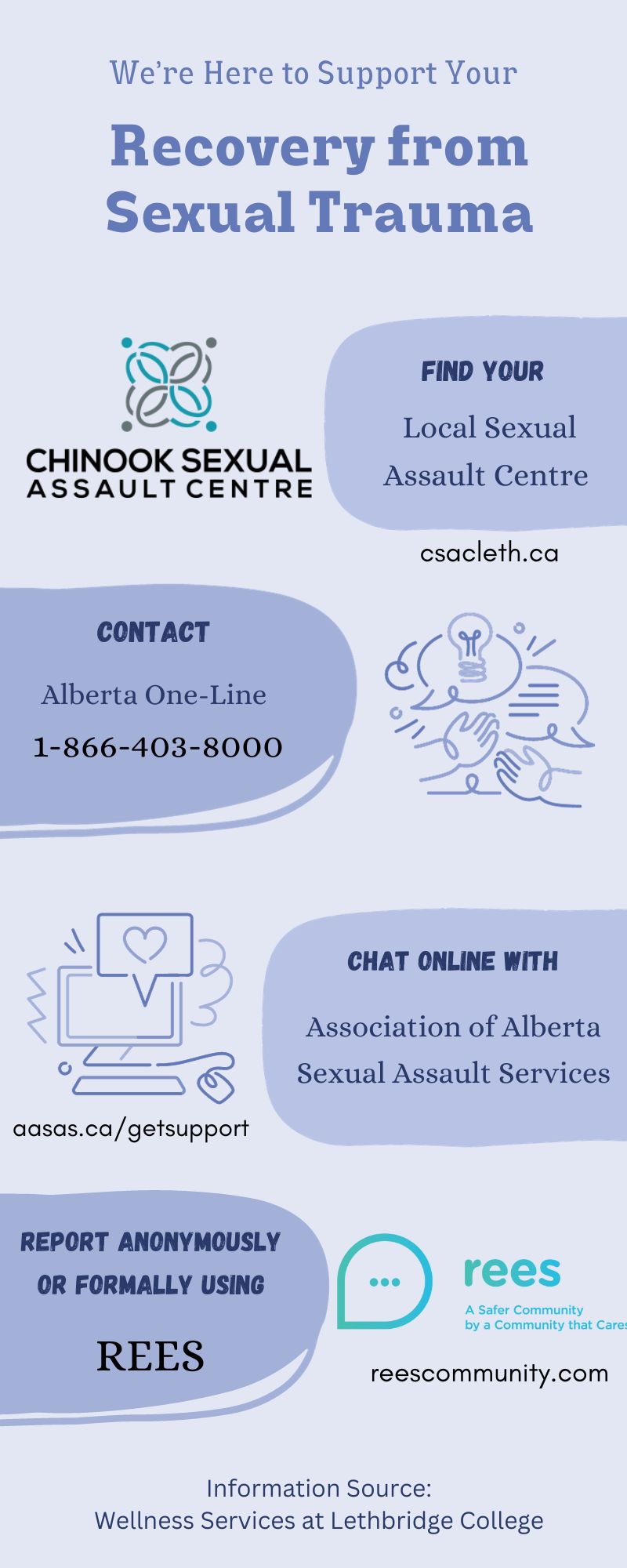Recovering from sexual trauma is not something that can be achieved overnight. It is a long journey that needs courage and support. Lynda Church, a support nurse at Lethbridge College, and Cheryl Patterson, the manager of Chinook Child and Youth Advocacy Centre, have offered valuable advice for survivors of sexual assault and their friends and family.
According to the Government of Alberta, an estimated 1.8 million Albertans have experienced sexual violence in their lifetime. That is 45 per cent of Alberta’s population, which translates to almost one in every two people. When sexual violence occurs around us, how to recover from sexual trauma is a topic worthy of discussion. To understand the methods of recovery, we first need to know the psychological trauma that survivors may experience.
Patterson brings a clinical perspective, dissecting the intricate layers of mental health impacted by sexual trauma.
“In the short-term, it can trigger feelings of humiliation, anxiety, distress, emotional turmoil, or uneasiness. In the long-term, it can lead to chronic stress, depression, and effects on self-esteem, self-worth, relationships, and overall quality of life,” said Patterson.
Church says similar impacts and says the effects can be as varied as the situations presented and as the people themselves.
“One person may have one incident that causes ongoing psychological effects for years to come, while someone else with the same kind of incident may have a short-term response and be able to maintain their emotional regulation without more than a few counselling sessions,” said Church.
According to a survey conducted by the Government of Alberta, nearly half of Alberta’s post-secondary students were victims of gender-based violence in 2022. Support from campus is important in student victims’ recovery journey. Letting more people know about campus resources is something that needs to be done.
Church says initiatives such as free counselling through Wellness Services and Gender-Based Violence Support at Lethbridge College and resources like the confidential website https://www.reescommunity.com/ offer survivors a safe space to share their experiences at their own pace.
“Students can submit their story anonymously, to keep their detailed record through REES which is a confidential website that gives a student the option of sharing their disclosure to their campus if and when they decide to,” said Church.
Patterson shares some tips, such as staying connected, preparing for symptoms, and a resource called RAINN (Rape, Abuse, and Incest National Network) that provides information on the phases of recovery. She said self-care trauma is highly individualized, as everyone’s trauma experience and coping mechanisms are different. Self-care strategies may include various activities, like reading a book or using self-care apps. However, she emphasizes the importance of assistance from professionals.
“Seeking professional help from a trained therapist is highly recommended. They can provide tailored guidance to support a survivor’s recovery in a safe and non-judgmental environment,” said Patterson.
Church reminds us that not all supporters have to be experts. People like us just have to show compassion and guide the survivors in the right direction for support. Ultimately, by uniting our efforts, we can create a society where survivors are supported and able to rebuild their lives with hope and dignity.



